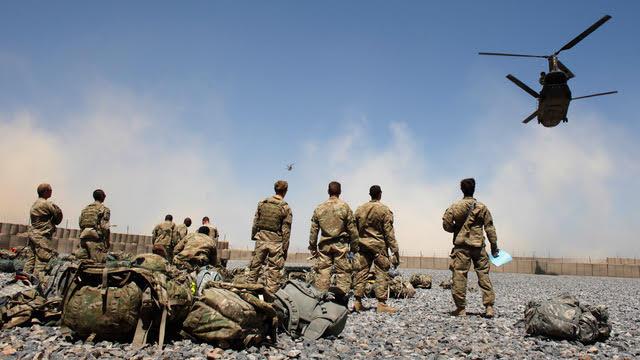Sometimes, there is no graceful way to make an exit. No goodbyes, no tears, no long, last, lingering looks. You just pack up, close the door, and leave.
These past few days, I haven’t been able to stop thinking about America’s tragic departure from Afghanistan. Many years ago, I spent a few weeks in that country and quickly came to the conclusion that Afghan culture and politics were way above my pay grade. I admired the harsh beauty of the Hindu Kush in winter and marveled at the proud independence of the Afghan people. I laughed at the baker who baked pebbles into his bread so it weighed more on his scales. I tried to learn bargaining skills but it was readily apparent to everyone that I was novice and fair game for more skilled practitioners of that ancient Afghan art. But one day, there came a moment when I felt so far away from everything familiar that I knew I had reached the known limits of my own universe and that any step in any direction might well take me over the edge. It was time to come home.
As heartbreaking as the images of the current chaos in Kabul on the nightly news are, I’m persuaded it was time for our troops to come home. It was time to leave. All that treasure and all that blood, and yet, twenty years in, we were no closer to solving the riddle of Afghanistan. Like the British and Soviet empires who wrestled with “the Afghan problem” before us, we simply did not understand what we were up against. We believed we could fix a problem we couldn’t even begin to identify. We thought we could count on our military might and our good intentions, but neither of those wrenches fit the nuts and bolts of the machine we wanted to repair. We never had a fighting chance in Afghanistan and I grieve for all those men and women, soldiers and civilians, who paid the ultimate price in a war that couldn’t be won.
It’s certainly possible that our exit could have been more thoughtful or orderly, although “orderly” is not a word that is often used when describing either combat or Afghanistan. The best I can hope for is that this tragedy will teach us a lesson we won’t ever forget. Apparently, the ache of Vietnam has faded. Now, we have joined the list of nations that have tried and failed to fix the problem of Afghanistan. I pray we won’t be drawn into the next conflict that confronts us down the road.
I do know this: isolation is not the answer. The world we’re living in is far too complex and interconnected to allow us the luxury of withdrawing from our global commitments and responsibilities. But we have to find a smarter way of surviving in the jungle. Thinking that we can simply impose our political will or our democratic values on other people is a cultural arrogance we can no longer afford.
In 1890, Rudyard Kipling published his poem “The Young British Soldier.” He knew all-too-well the tragedy that is Afghanistan and he tried to convince the British public and leadership of the folly of engaging in a far-away war that could never be won. It ends with this sad verse:
When you’re wounded and left on Afghanistan’s plains,
And the women come out to cut up what remains,
Jest role to your rifle and blow out your brains
An’ go to your Gawd like a soldier.
Sigh.
I’ll be right back.
Jamie Kirkpatrick is a writer and photographer who lives in Chestertown, MD. His work has appeared in the Washington Post, the Baltimore Sun, the Philadelphia Inquirer, the Pittsburgh Post-Gazette, the Washington College Alumni Magazine, and American Cowboy Magazine. Two collections of his essays (“Musing Right Along” and “I’ll Be Right Back”) are available on Amazon. Jamie’s website is www.musingjamie.com




Write a Letter to the Editor on this Article
We encourage readers to offer their point of view on this article by submitting the following form. Editing is sometimes necessary and is done at the discretion of the editorial staff.